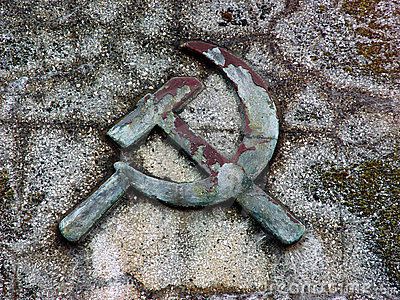Né en Pologne, Leszek Kolakowski se rapproche du communisme à partir de 1945 et devient membre du Parti ouvrier unifié polonais (nom officiel du Parti communiste polonais) en 1947. Il en est exclu en 1966 à la suite de ses nombreuses critiques sur l’impasse du communisme. En 1968, alors que la Pologne est traversée par une vague antisémite orchestrée par le pouvoir, il quitte son pays (sa femme est d’origine juive) et s’installe définitivement à Oxford en 1970 où il enseignera la philosophie et les sciences politiques.

Son travail porte principalement sur l’analyse de la pensée marxiste, qu’il combat. Ainsi, en 1976, paraît en polonais, puis en anglais en 1978, son immense Histoire du marxisme en trois volumes. Le premier volume, intitulé Naissance, porte sur Marx et Engels. Le deuxième, Essor, couvre la période de Kautsky à Lénine. Enfin, le troisième, Décomposition, s’attarde dans une première partie à l’analyse du régime stalinien, puis, dans une seconde, aux autres intellectuels ou courants marxistes contemporains ou postérieurs (Gramsci, Lukacs etc.).
Il faut attendre 1987 pour que les éditions Fayard publient cette œuvre monumentale. Curieusement, seuls les deux premiers tomes sont édités. Le troisième ne sera jamais traduit ni publié en français. Interrogé en 2003 par le journaliste Brice Couturier, Leszek Kolakowski explique qu’”ils n’ont pas voulu outrager la gauche française“.

Réputé pour son anticommunisme, soutien indéfectible au syndicat Solidarnosc, Leszek Kolakowski démontre dans ce troisième volume que le régime stalinien n’est pas une erreur, mais qu’il est bel et bien la continuité logique de la pensée de Marx et du léninisme, qui conduisent inévitablement au totalitarisme. Cette affirmation est une véritable hérésie pour la gauche française de l’époque (et encore aujourd’hui) qui considère le stalinisme comme un accident de l’histoire afin de préserver la pureté de l’idéal communiste.
Auteur d’une trentaine de livres, récompensé par une multitude de prix, ce grand penseur du XXe siècle demeure peu connu dans notre pays où il n’est pas toujours bon d’aller à l’encontre de la pensée dominante, en l’occurrence le marxisme.
Sources :
• « Kolakowski, le philosophe qui inspira les dissidents polonais (1927-2009) », Brice Couturier in revue Histoire & Liberté, La grande secousse : colloque, n° 39 pp. 143-146, 2009.
• Pour avoir une aperçue de son analyse sur le lien marxisme-stalinisme, voir « Les racines marxistes du stalinisme » in Leszek Kolakowski, Le village introuvable, Complexe, 1986, pp. 47-72.

Très bon connaisseur du marxisme, il est célèbre pour sa grande Histoire du marxisme en trois tomes (Główne nurty marksizmu), parue en 1976 et traduite (partiellement) en français en 1987[2]. Il y souligne méthodiquement les erreurs sur lesquelles est fondée la théorie de Marx : la valeur-travail, la lutte des classes, le matérialisme historique, etc. Il y souligne en outre que le stalinisme est la conséquence inéluctable d'un système communiste, la recherche de l'utopie communiste ne pouvant aller que vers le totalitarisme. En particulier, il montra à de nombreuses reprises[3] que le stalinisme était dans la continuité la plus pure du léninisme. Le stalinisme, caractérisé par « l'abolition du droit, l'autocratie du Chef, la délation généralisée comme principe de gouvernement et la toute-puissance apparente de l'Idéologie », est la conséquence logique et inévitable de la théorie marxiste ; le stalinisme est un « marxisme-léninisme en action »[4].
Sans être pour autant croyant, il avait un respect profond pour la religion, qu'il estimait nécessaire à l'existence d'une société. Il se montrait particulièrement critique du consumérisme et du relativisme culturel. Sa découverte du gauchisme libertaire des campus américains dans les années 1970 le renforce dans ces idées et il qualifie ces campus de « pathétiques et dégoutants ».
Comme philosophe, il s'attacha principalement à montrer l'histoire des idées, dans une démarche proche de celle d'Isaiah Berlin.
Simone Manon, philosophe rend un hommage à l'homme et son écriture, un extrait ici en lien
Pour mes amis polonais en vo:
Sur la jeunesse

by the:
His intellectual life started in the misery of Nazi-occupied Poland—he had to study in secret, mostly alone—and finished in one of the nicest places imaginable: Oxford's All Souls College. In a university tailor-made for gifted misfits, Mr Kolakowski was happy: he was left alone to read, write, and, less often, talk. All Souls provided a glorious academic retreat: the only obligation is to dine there regularly. His distinctive hat, craggy features, idiosyncratic English and perspex walking stick established him as a landmark even in a city studded with oddities and treasures.
“Philosopher” was his usual label, but not a wholly accurate one: historian of ideas would be better. Mr Kolakowski showed little interest in the Oxford tradition of analytical philosophy; like his great Oxonian philosophical contemporary, Isaiah Berlin, he formulated no grand scheme of ideas. His forte was to explain the development, attractiveness and shortcomings of political ideas and systems, particularly the communism invented by Karl Marx and practised across the Soviet empire.
His magnum opus was the three-volume “Main Currents of Marxism: Its Rise, Growth and Dissolution”, published in the 1970s. It calmly and expertly demolished the pillars of Marxist thought: the labour theory of value, the idea of class struggle, historical materialism and the like. He also pointed out, again without unnecessary polemics, the practical shortcomings of communist systems. Stalinism was not an aberration, he argued, but the inevitable consequence of pursuing a communist utopia. For that, powerful left-wing voices such as the historian E.P. Thompson berated him as a traitor to the noble socialist ideals that he once espoused.
Both his experience and beliefs made such criticism seem patronising. Mr Kolakowski had lived under two kinds of totalitarianism, Nazism and communism; his ideas had been censored even in the supposedly more liberal communist Poland of the late 1950s and 1960s. What finally drove him, and his Jewish wife Tamara, to emigrate was the communist-inspired anti-Semitic campaign of 1968. Few if any of his leftist critics had such experiences. In a spirited rejoinder to Thompson, Mr Kolakowski wrote:
"The only medicine communism has invented—the centralised, beyond social control, state ownership of the national wealth and one-party rule—is worse than the illness it is supposed to cure; it is less efficient economically and it makes the bureaucratic character of social relations an absolute principle."
His opponents in that argument seem to have landed on the dustheap of history. But Mr Kolakowski's distaste for communism did not make him an evangelist for free-market liberalism: he was too inquisitive, sceptical and irreverent to support any particular doctrine strongly. He was particularly critical of those who relied solely on science for answers to the big questions about life. He criticised too the emptiness of secular materialism. Increasingly, he became convinced that religion, in some form or other, was a necessary part of human existence. He was no churchgoer, but asked what his next target would be after communism, he replied, only half-jokingly, “the devil”.
For those involved in the struggle against communism, on both sides of the iron curtain, he became a guru, ranking along with Czeslaw Milosz, the émigré Polish poet whose book “The Captive Mind”, published in 1953, unpicked the mind-mangling effects of communist thought.
In those early days, of course, Mr Kolakowski was still a loyal, if critical, party member. Some of his fans preferred to forget that. They also overlooked his youthful tirades against Poland's Catholic church. As a zealous party member when the remnants of wartime anti-communism were still strong, he used to carry a pistol for fear of assassination. Remembering his father's murder during the Nazi occupation, the young Kolakowski accepted communism as an alternative both to Nazi militarism and to the failures of Poland's pre-war system of semi-authoritarian capitalism. Indeed his country's post-war communist rulers saw the brainy, determined youngster as a prize prospect and rewarded him with a trip to Moscow in 1950 to experience the delights of Soviet rule.
That backfired. He wrote later of the “material and spiritual desolation” he saw there, though it took two decades for his faith in Poland's socialist system to erode entirely. In the late 1960s, he made his way to America but found the radical campus leftism “pathetic and disgusting”; no place to bring up his daughter, he felt. He visited America regularly, though, and it was in his Jefferson lecture, the highest honour the federal government gives for intellectual achievement, that he coined his best-known aphorism: “We learn history not in order to know how to behave or how to succeed, but to know who we are.”
Le journal Nation retrace sa vie assez complète, voir le lien ci-dessous + traduction

/image%2F0991260%2F20140929%2Fob_35568a_bwnnx24iqaa50bf.jpg)




/image%2F0991260%2F20141001%2Fob_057176_bwnnx24iqaa50bf.jpg)
/image%2F0991260%2F20140929%2Fob_89b175_faye-sion.jpg)
/image%2F0991260%2F20140928%2Fob_e4a0ba_arton141.jpg)
/image%2F0991260%2F20140927%2Fob_a6e144_immigration-en-france-ce-qu-il-faut-sa.jpg)

/image%2F0991260%2F20231006%2Fob_fc0ce8_31wyy1xz5zl.jpg)
/image%2F0991260%2F20231003%2Fob_599d42_37623788621-1bf4112d19-b.jpg)
/image%2F0991260%2F20231003%2Fob_12e58d_cdnj3e4wgaa57ve.jpg)
 Haut de page
Haut de page